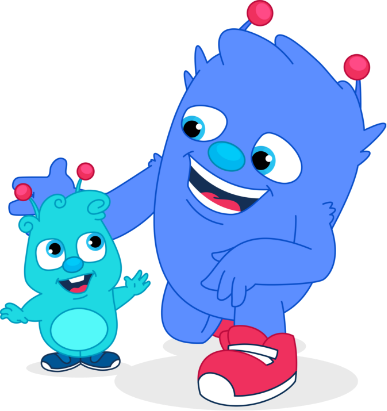August 29, 2018
3 Steps for Supporting the Back-to-School Transition
Contributed by Lindsay Leusch, Doodle Bugs! Director of Education Outreach; Behavior Specialist
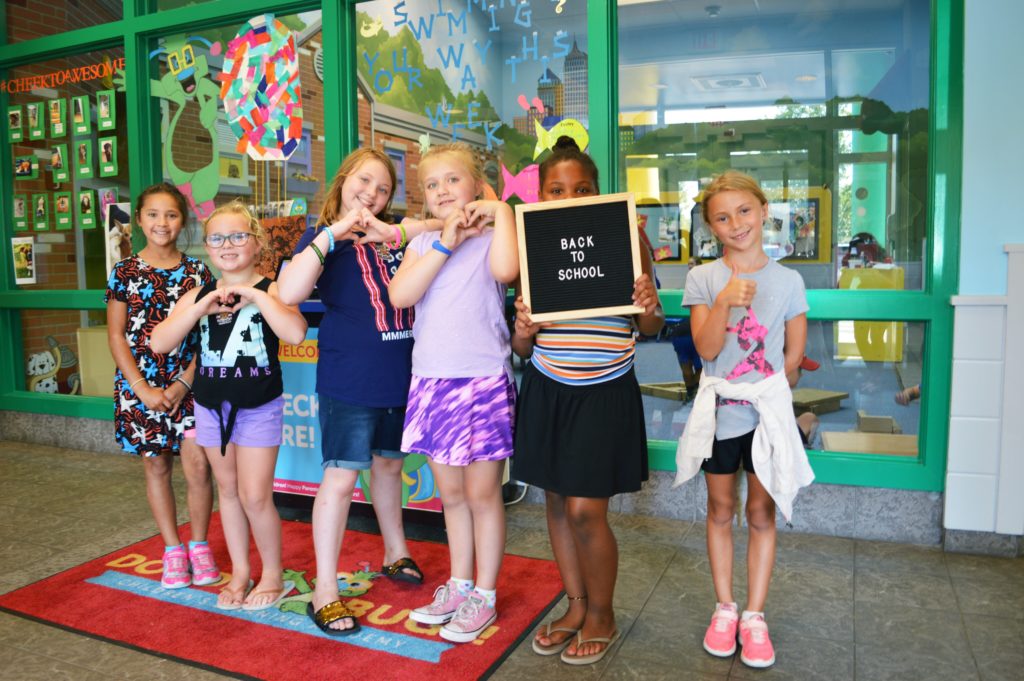
Emotional development is one of the main influencers in a child’s life. These skills not only drive social abilities and academic outcomes, but family dynamics as well.
With that being said, it’s critical to understand what this development entails and the support it requires. Children experience remarkable growth particularly in their first few years of life, so needless to say there is no better time than now.
As an Early Childhood Behavior Specialist, I have had the privilege of working with numerous little ones and families over the years and have found back-to-school one of the most challenging, yet rewarding times in a child’s life to help hone these skills. While nerves and excitement often run high, we have the opportunity to begin laying the foundation for these life-long skills which will forever be carried with them.
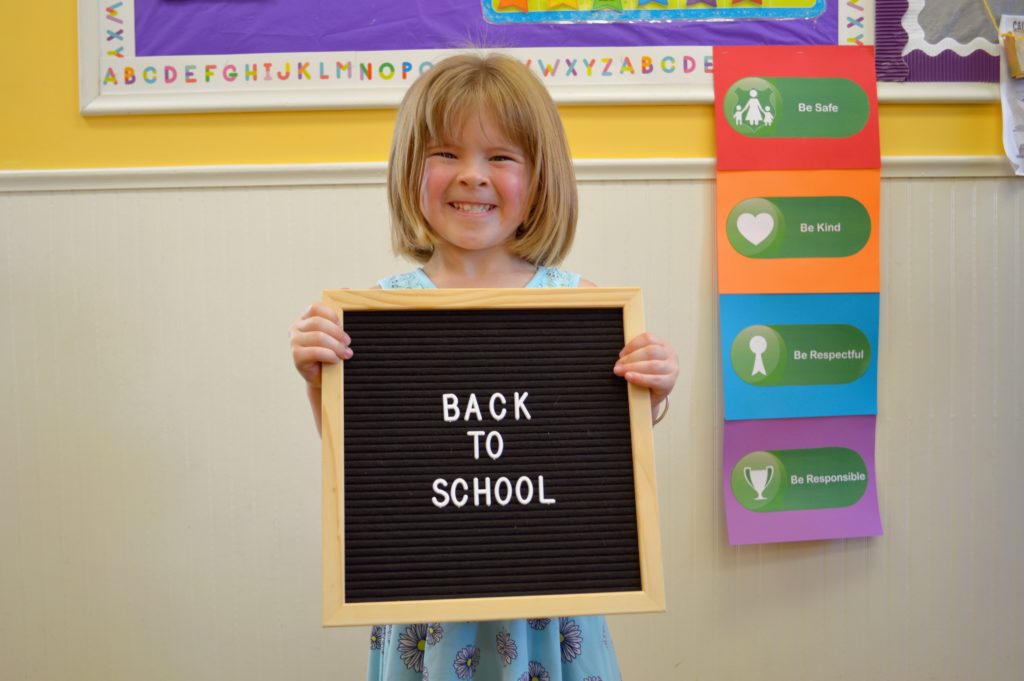
As a parent myself , I too have encountered the back to school “feels” with my own two children; each having experienced and coped with this change in their own unique way. While my daughter often enters into a new setting shy and timid, my son comes off as animated yet anxious. And with each difference it was equally necessary that we matched these feelings and behaviors, which best suited their individual needs. Emotional development is not one-size fits all.
Knowing this, it’s important to be mindful and remain understanding. The looming unknown of a new school year brings about different emotions in each one of us and the growth happens with the right combination of knowledge and support from the loving adults in a child’s life.
So, while emotional navigation is unique to each child the steps an adult can take to help them on this journey, remain constant:
- Recognize: Feelings matter… so accept them
- Understand & Manage: Validate their emotions, stay positive, & work together on a solution
- Reflect: Focus on the life skills at stake
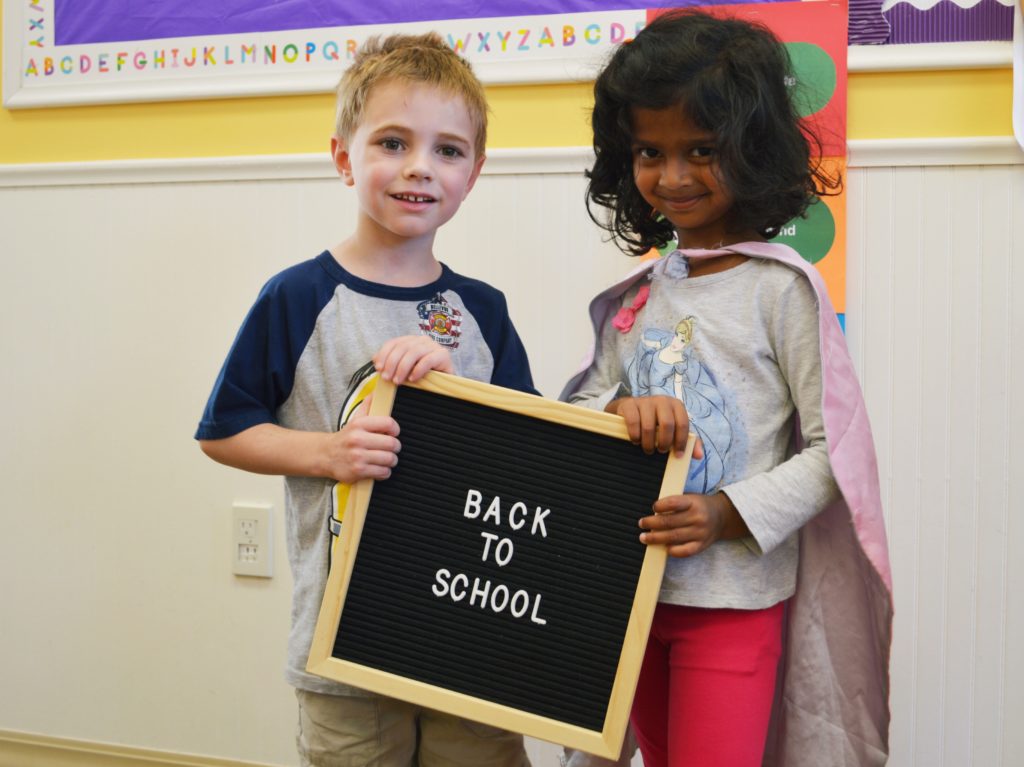
Feelings matter…so accept them
“It doesn’t help to tell your child how or how not to feel, like ‘Don’t be scared’ or ‘There’s nothing to be worried about…It’s disrespectful to your child, and worse — it doesn’t work.” Dr. Debra Gilboa.
It’s important that emotions are treated as neither good nor bad. Instead see and use them as a guide for “what comes next.” How children feel and cope naturally tie in to their temperament, which is a fixed trait identifiable early on in their life. Generally, temperament can be described in the following five ways and shape how children experience the world around them:
- Emotional intensity
- Activity level
- Frustration tolerance
- Reaction to new people
- Reaction to change
So, be mindful that an emotional event can and will be expressed and coped with differently; within a classroom and within a family. And that’s completely okay!
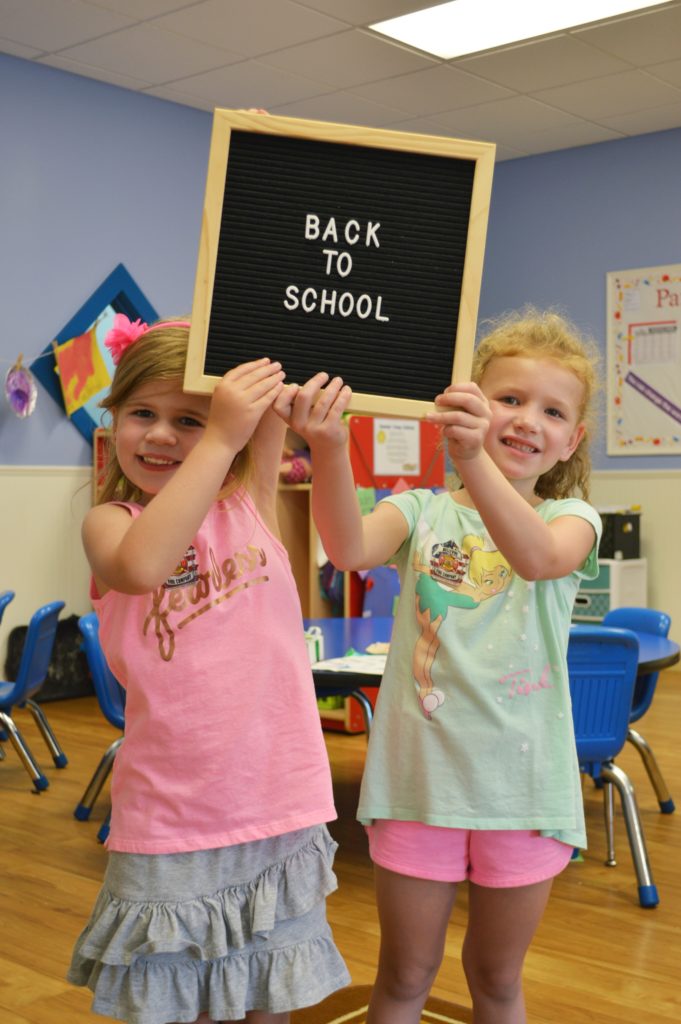
Validate their emotions, stay positive, & work together on a solution
Growth happens as a result of each experience your little one faces. When you break it all down, it’s not only the feeling itself that your child learns from. Rather it’s the combination of knowing what they are feeling and the success rate of the action they took to cope. And like all other learning, the most important part is involving the learner [your child] in the solution. This may sound like:
“You look really nervous about being in a new class. You loved Ms. Allie and I’m sure you’ll love having Ms. Nancy just as much. It takes a little time to get to know someone. How could we help you get to know her a little better? What about sharing your favorite story and asking her to read it?”
In this:
- A specific feeling was acknowledged (there are many, so be specific!)
- A positive outcome was offered, related to this feeling (see the possibilities, not the limitations)
- An action plan was offered (which included the child’s input in response to their feeling)
It’s also to be expected that with big emotions, can come big behaviors. Animated [over the top] actions, regression, limit testing, crying, shutting down, and defiance are some of the most common back-to-school behaviors children experience when faced with intense feelings. And this all boils down to skills they do not have [yet] to cope with the discomfort of their emotions; being mindful that these may look different each day in response to schedule and sleep-pattern fluctuations. Physiological changes play just as big of a role in emotions and behavior management as they do for adults! So, matching a big behavior with our own only adds fuel to the fire. By instead meeting these feelings with acknowledgement, a positive outlook, and solutions we’re reassuring children that they’re loved and they’re safe; the two key factors which motivate behavior.

Focus on the life skills at stake
Lastly, while it’s necessary to help your child successfully “make it through the door” on the first day, it’s equally necessary that you help them do so with compassion and confidence.
The steps you take now with your child without a doubt will take practice- and lots of it- but will reap far greater rewards. Simply remind yourself of the end goal and that you are teaching them skills which will last them well beyond their time in our program. You are helping prepare them for the many “first days” in their life, long after school is over. To help put this last step into perspective, you can ask yourself:
- Did the solution help my child cope with their emotion? [Even if this success was stretched over a period of time and required lots of practice]
- What life skill am I helping to teach my child? How will and/or can they use this later in their life?
So rest easy, you’re not alone with this transition. Whether your child is entering preschool or preparing for any other first day, with the right recipe of understanding, support, and encouragement from the loving adults in their life they will be set up for life-long success!
Resources:
Understanding Temperament- http://www.pbs.org/parents/expert-tips-advice/2015/09/understanding-childs-temperament/
Social/Emotional Development Milestone Resources- https://www.zerotothree.org/
Helping Your Child Adjust to Preschool (and care at all ages)- https://kidshealth.org/en/parents/adjust-to-preschool.html
How to Help Kids with Back to School Anxiety- https://www.today.com/parents/how-help-kids-back-school-anxiety-any-age-t115042
Putting You First: School Ready- https://www.rochesterfirst.com/news/video/putting-you-first-school-ready_20180820222414/1383654368

 1.866.668.5111
1.866.668.5111  6:30 am - 6:00 pm
6:30 am - 6:00 pm 
 Give a Happy High Five!
Give a Happy High Five!


